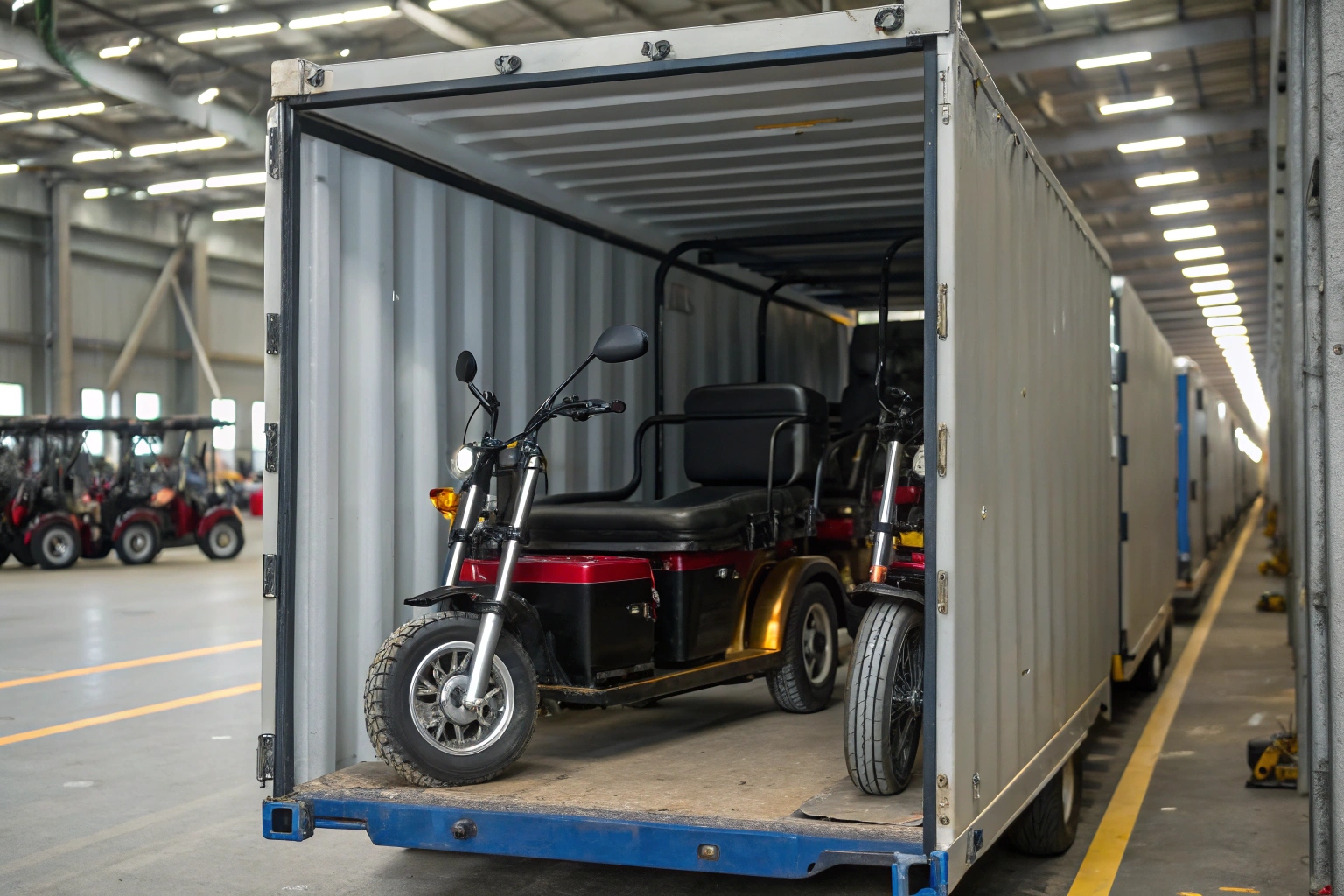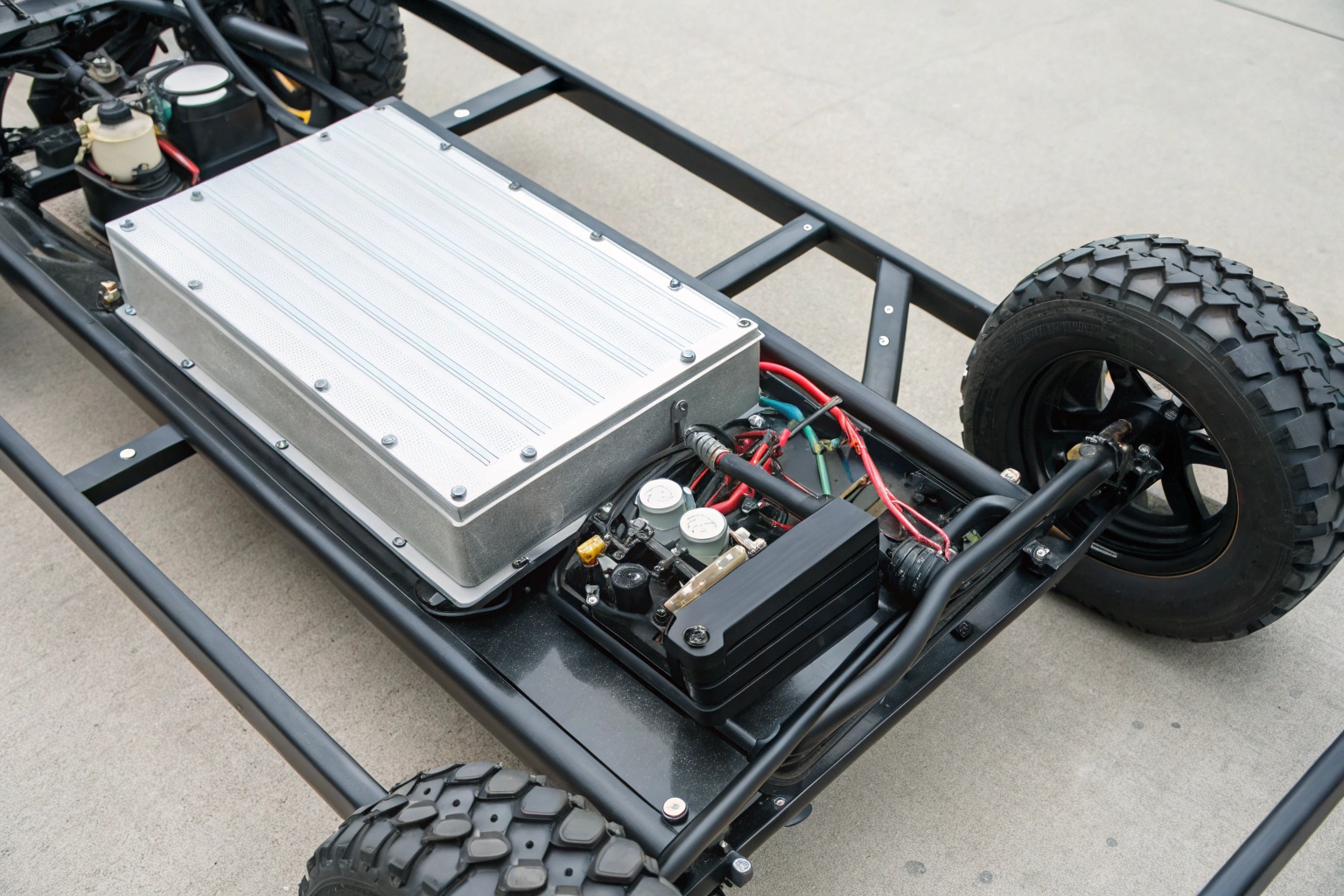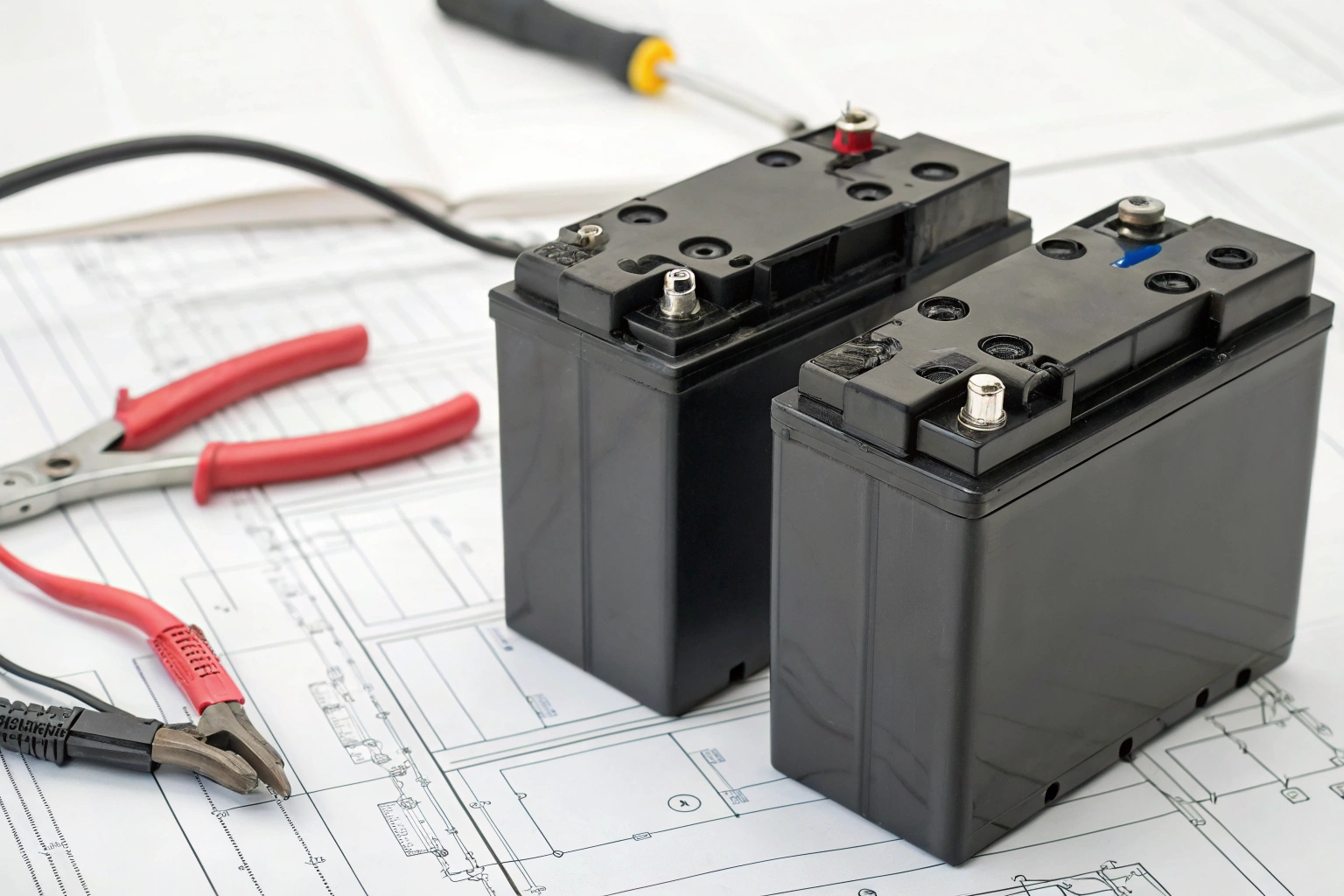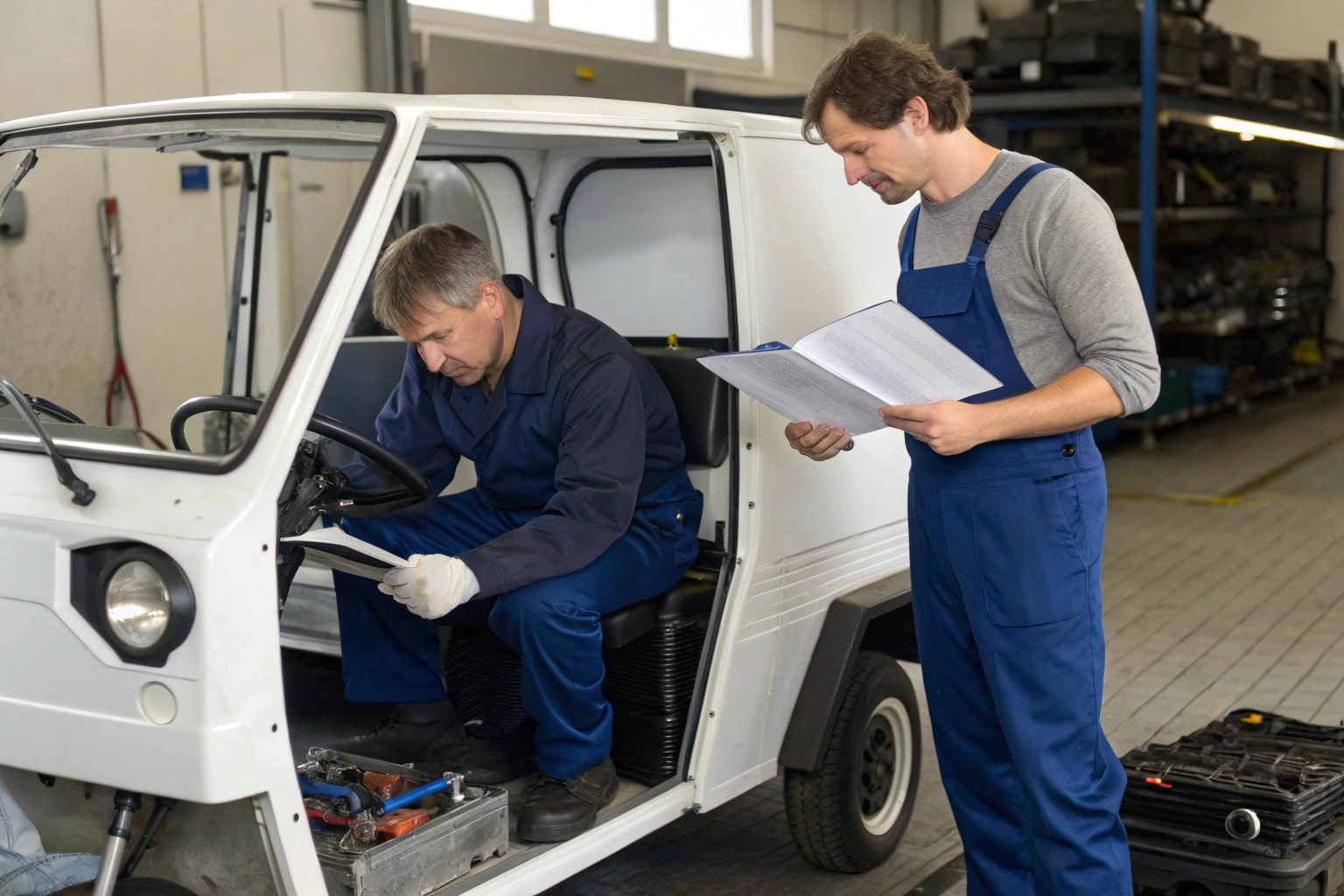A bad warranty can turn your profitable import business into a nightmare. A container of electric tricycles with failing batteries and no factory support will ruin your reputation and your finances.
Focus on warranty coverage for key parts like the battery, motor, and controller. A good warranty details the duration, includes after-sales support with free spare parts, and has a clear claims process, protecting your investment and ensuring your fleet stays on the road.

I've seen it happen. An importer buys a container of tuk-tuks based on a low price, only to find the warranty isn't worth the paper it's written on. When motors start failing after six months, the supplier disappears. Suddenly, that "great deal" becomes a massive loss. A strong warranty is not a bonus feature; it is the foundation of a good business partnership. It's the factory's promise to you and your customers. Let's break down exactly what a strong warranty looks like, so you can protect yourself.
Which Parts of Electric Three Wheelers Should Always Be Covered by Warranty?
Your vehicles are out in the field, and something breaks. You need to know that the most critical and expensive parts are protected, or a single failure can wipe out your profit.
Key components like the battery, motor, controller, and chassis must always have clear warranty coverage. These are the heart of the vehicle, and industry reports show over 60% of all claims relate to the battery and motor, making them essential to protect.

These high-value components are where a manufacturer shows their true quality. A factory that uses cheap battery cells or aluminum motor windings knows they won't last, so they'll offer a very short or vague warranty. One of my clients in Kenya almost signed a deal where the warranty excluded "electrical components," which is basically the entire powertrain! We helped him find a better partner. A trustworthy factory stands behind its core technology. We even offer a "whole vehicle warranty" for a period, like one year, to cover any manufacturing defects, giving you total peace of mind.
| Sangkap | Standard Coverage (What you often get) | Recommended Coverage (What You Should Demand) |
|---|---|---|
| Baterya | 6 months, defects only | 12-18 months, with a State-of-Health (SOH) guarantee (e.g., 70% capacity). |
| Motor | 12 months | 18-24 months, covering defects in materials and workmanship. |
| Controller | 12 months | 18-24 months, including protection against water damage if advertised. |
| Chassis/Frame | 12 months against cracking | 24+ months against cracking and structural rust. |
| Whole Vehicle | Often not offered | At least 12 months against any manufacturing defects. |
How Long Should the Warranty Last for Major Components?
A three-month warranty is useless if the part is designed to fail in six. The warranty period must align with the real-world lifespan of the component, or you're left with the bill.
For wholesale contracts, demand a minimum 12-18 month warranty for batteries and 18-24 months for motors, controllers, and frames. This duration shows the supplier's confidence in their product and protects you through at least one full operational season.

Warranty length is a direct reflection of quality. A factory won't offer a 2-year warranty on a motor they know will fail in one. For a business, a longer warranty is critical because it lowers your Kabuuang Gastos ng Pag -aari (TCO). While warranty norms can vary by market, a good supplier will offer strong terms everywhere because their quality is consistent. I have seen that providing longer warranties helps our clients in Latin America and Africa build trust with their own dealers and sell vehicles at a better price. It turns the tricycle from a simple commodity into a reliable business asset.
- Battery: 12–18 months. Crucially, ask for a State-of-Health (SOH) guarantee, ensuring it holds a minimum capacity (e.g., 70%) by the end of the term.
- Motor & Controller: 18–24 months. These are robust parts and the factory should have no problem guaranteeing them.
- Frame & Chassis: 24 months or more. This is the skeleton of the vehicle; it must be built to last.
What After-Sales Support Should Importers Expect from Suppliers?
A warranty is useless if you can't get the spare part or technical help to use it. When a vehicle is down, you need a solution, not an argument with your supplier.
Reliable suppliers provide a complete support package including a free initial spare parts kit, technical manuals, online troubleshooting, and training. According to a Deloitte survey, 72% of B2B buyers rank strong after-sales support as a critical factor in their choice.

This is one of the biggest differences between a trader and a real factory partner. A trader sells you a box. A factory sells a complete business solution. When you order a container from us, we always recommend including a free starter kit of spare parts for every 5-10 vehicles. This includes consumables like brake pads and fuses, and critical parts like a spare controller. This means you can fix the most common problems on day one without waiting for a shipment from China. This simple step drastically reduces vehicle downtime and builds your customers' confidence in you.
- Initial Spare Parts Kit: A percentage of free parts calculated based on your order volume.
- Technical Manuals: Detailed repair and maintenance guides in clear English.
- Online Support: Access to an engineer via video call or chat for real-time troubleshooting.
- Training: On-site or remote training for your mechanics on how to service the vehicles.
How Can Importers Ensure Warranty Terms Are Enforceable Internationally?
A promise is not a contract. Without a clear, written agreement, a warranty claim can turn into an endless argument, especially across borders where legal systems differ.
To ensure your warranty is enforceable, demand a detailed written contract that specifies the claim procedure, parts and labor coverage, and clear exclusions. Vague terms cause over 35% of cross-border trade disputes, according to the International Chamber of Commerce.

You must protect yourself before any money changes hands. This starts with a professional sales contract, not just a simple Proforma Invoice. The contract should be your single source of truth for the warranty. It removes any "he said, she said" confusion. I always advise my clients to be as specific as possible. Who do you contact to make a claim? How do you prove the part is defective (photos, videos)? Will the factory cover shipping costs for the replacement part? Answering these questions in writing upfront prevents 99% of future problems.
| Warranty Term | Risk if Missing or Vague | Recommended Clause in Your Contract |
|---|---|---|
| Claim Procedure | You don't know who to call or what to do; claims get ignored. | "Warranty claims must be submitted to [email address] with photo/video evidence. Supplier must respond within 48 hours." |
| Parts & Labor | Supplier sends a part, but you have to pay for shipping and mechanics. | "Warranty covers the cost of the replacement part and standard air freight to the importer's port of entry." |
| Exclusions | Supplier denies a claim, calling it "normal wear and tear." | "Normal wear parts are defined as tires, brake pads, and bulbs. All other components are covered." |
| Transferability | The warranty dies with the first sale, hurting your resale value. | "The remainder of the vehicle warranty is fully transferable to subsequent owners in the territory of [Your Country]." |
Konklusyon
A strong warranty is your most important tool for risk management. It protects your money, your reputation, and your customers. Never treat it as an afterthought—make it a deal-breaker.

